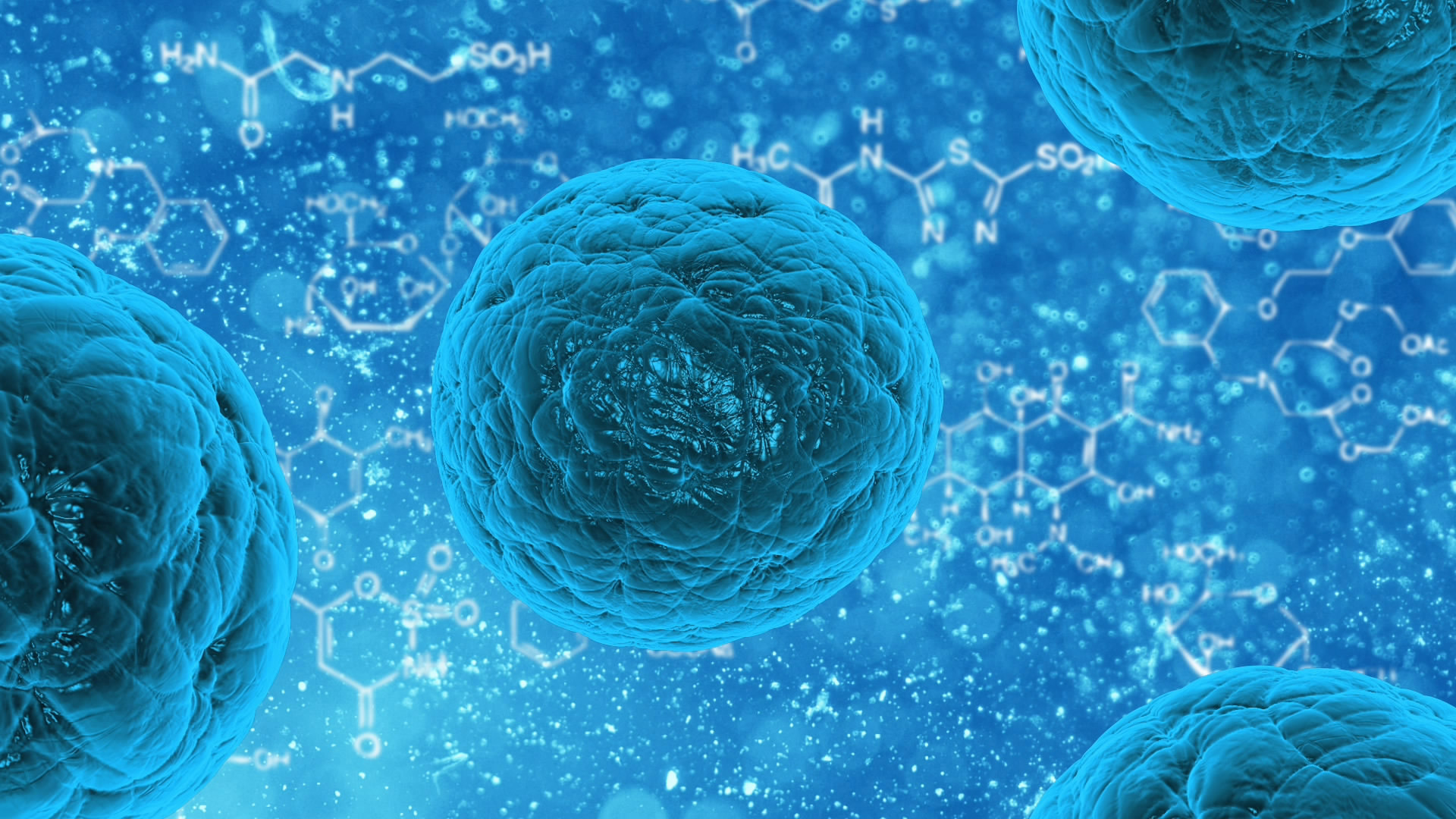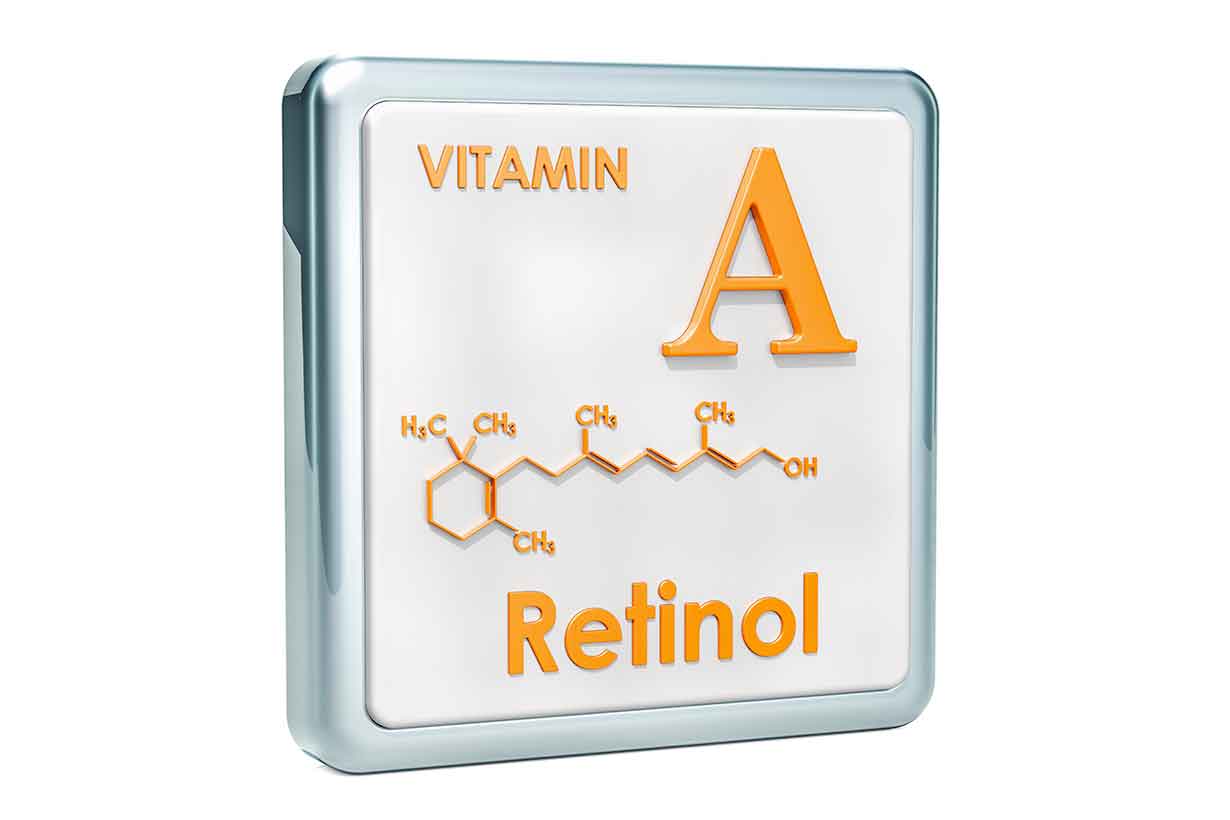Skin care includes a vast array of ingredients, however the most vital biological ingredient is vitamin A or rather Retinoids as they are scientifically named. To be able to understand why this is the most important element for the skin, it is necessary to look into the biology of our cells and their structure
Our entire being is made up of cells. From birth to death they go through an ongoing process of replication which slows down as we mature. Within the nucleus we find the information that allows the cell to replicate, these being our genes. Considering the multitude of cell replication that occurs; abnormalities are unavoidable, especially once a cell has sustained damage due to either pollution, sun exposure or the internal environment.
The damage is either reversible or irreversible, with the cell capable of self repair. This is only possible with the support of vitamin A, which ‘works intimately and naturally with our DNA to determine how our cells behave, differentiate and mature.’

Due to the integral role that vitamin A plays in a healthy skin, it has become known as the, ‘skin normaliser.’ I believe it is imperative to treat skin care as mainly needing a daily topical supplementation of vitamin A.
From my experience and education on Retinoids, there are 7 main benefits they provide for the skin;
1. Normalizes cells : The vitamin boosts the stem cell system of the skin back to its former glory of our youth in cell differentiation (replication), rapidly improving healing to any skin injury.
2. Helps with collagen and elastin fibres : MMPs (matrix melloproteinases) are powerful enzymes that digest old, damaged collagen and elastin fibres. However there are elements that may stimulate their release when not necessary, leading to thinning and sagging of the skin. Vitamin A will inhibit the formation of these enzymes.
3. Promotes natural moisturising of the skin: The outermost layer of the skin and our Natural Moisturizing Factor (NMF) are responsible for skin moisture. Vitamin A assists both in healthy functioning; as well as supporting the secretion of Hyaluronic Acid, which has the extraordinary capability of attracting and holding onto 1000x its weight in moisture. We know it as 'Injectable filler.'
4. Improves problematic skin : Vitamin A has an acute influence over our sebaceous glands where sebum (naturally occurring oil) is secreted. By reducing their size and degree of secretions. It will also significantly reduce the bacterial numbers on the skin’s surface as well as in the pore ducts which greatly contributes to the presence of acne.
5. Neutralizes abnormalities : Retinoids perform this function by ample means. The most exciting is their close relationship with pigmentary disorders, as they have the ability to inhibit the enzyme tyrosinase, whose job is melanin (pigment) production and pigment deposition.
6. Supports a healthy skin structure : A skin that is well supplied with vitamin A, will have a healthy turnover of cell reproduction. In turn, this will ensure a strong, flexible and compacted structure, having the overall effect of protecting our skin from numerous impairments.
7. Immunity : The skin evolved to possess its own immune system, commanded by the Langerhan cells. They scavenge for any damages to the cell structure or DNA, weeding them out and blocking their expansion. Vitamin A helps to maintain their normal functioning, allowing them to recognise any DNA damage.

Purchasing a retinoid product can be a bewildering experience.
There are many names for it, the most popular being retinol. You may also encounter retinoic acid, retinyl palmitate, retinyl acetate, retinyl propionate etc. These names represent the different versions of the same vitamin at various stages within the body and cells. For example; retinoic acid is the strongest form of vitamin A, it lies within the nucleus of the cell. This version cannot be stored in large numbers and upon application to the skin would lead to a severe reaction of irritation. Which is why it has been recommended to use a ‘start low and go slow’ method; where you work up a ladder of dosage, giving your skin time to adapt and build up the receptors that accept the ingredients applied.
If one where to undertake a rich diet in vitamin A sources; they would automatically be stored in the liver, since retinol is important for its healthy functioning. This is why it is advised to use a topical agent for a more efficient and direct delivery.

With regards to ageing, we cannot explain its relation to Vitamin A without describing the adverse effects of UV exposure.
There lies a great paradox with retinoids. Though they are essential for many processes such as vision, immunity, healthy bones and cellular health, they are easily degraded by light, heat, air, moisture and UV rays. Seeing that we live our lives with daily sun exposure, it has been proposed by some scientists that ageing is in fact, a localised severe vitamin A deficiency in the skin. Which can clearly be seen in those who do not practice proper sun protection.
The takeaway I hope to impart on readers is that a skin care regime will never be complete without some form of vitamin A applied daily. Preferably before and after sun exposure to guarantee the utmost skin health.

